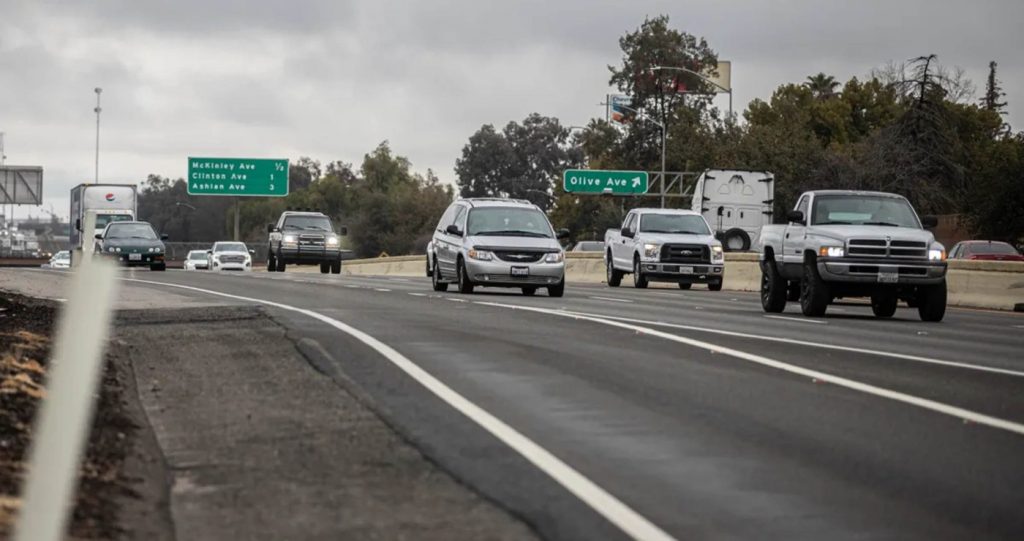By Ryan Sabalow | CalMatters
Californians for the past 54 years have relied on the state’s “lemon law” to fight back against car makers that sell them defective vehicles. Now, critics say Californians’ ability to recoup their money after buying a clunker could become more difficult, due to a hastily passed bill that lobbyists representing U.S. auto manufacturers and powerful attorneys groups drafted in secret.
Gov. Gavin Newsom hasn’t signed or vetoed Assembly Bill 1755. His spokesperson, Brandon Richards, on Friday said “the measure will be evaluated on its merits” before Newsom’s Sept. 30 bill-signing deadline.
But how the bill came to end up on his desk is the latest example of how influential lobbying groups write laws impacting millions of Californians behind closed doors — and how the measures are often passed with little time for public input or legislative debate.
“There wasn’t a single person who represents the people of California who knew about this and was a part of those conversations – for months,” Democratic San Ramon Assemblymember Rebecca Bauer-Kahantold her colleagues on the Assembly Judiciary Committee last month in the final days of the legislative session.
“They dropped this in our lap, and they expect us to buy an argument related to the urgency that feels, to be honest, not real. And we’re supposed to move this in a week’s time.”
The bill seeks to address a massive uptick in lemon law lawsuits clogging the state’s court system, but it started out earlier in the session as a measure dealing with child support.
Then on August 20, with less than two weeks left in the session, the bill was stripped through the secretive “gut-and-amend” process. Its language was replaced with a 4,200-word bill that seeks to reform how lemon law disputes are resolved. The bill is so complicated its legislative analysis, which lawmakers should read to fully understand a measure’s consequences, was more than 10,000 words.
Former Los Angeles Democratic Assemblymember Mike Gatto said it’s unlikely that lawmakers actually read all that in those final chaotic days of the session with hundreds of other consequential bills still pending.
“Unfortunately, when the Legislature makes complex policy like that with great haste, it increases the reliance on non-elected personnel,” Gatto said. “And it increases the reliance on special interest groups who tell the legislators what the legislation contains. It’s very hard during that chaotic last week of session to, you know, be able to review things of great length like that.”
Downey Democratic Assemblymember Blanca Pacheco, an attorney, told her Judiciary Committee colleagues she wasn’t comfortable voting for the bill because she wasn’t sure what it would do. “I want to make sure that consumers are protected as well,” she said. “Those are our constituents. And so that is what we really should be caring about. And I don’t know if consumers are really protected.”
Lawmakers acknowledge secret negotiations
The bill by two Democrats, Santa Ana Sen. Tom Umberg and San Jose Assemblymember Ash Kalra, nonetheless easily passed the Assembly committee, as well as the full Assembly and Senate.
Umberg’s office declined to answer CalMatters’ questions about the bill. Kalra’s office replied to an interview request with an emailed statement.
“AB 1755 went through the full legislative process with two robust committee hearings, consideration of amendments and all procedural steps,” Kalra said. “Despite concerns over process, the vast majority of members in both houses concluded this was a better policy for consumers and we could build upon the policy framework in subsequent years.”
Kalra acknowledged in his testimony that the measure was a product of negotiations between the groups behind the bill.
“AB 1755 represents a compromise between the consumer attorneys, (civil) defense attorneys, and some auto manufacturers, most notably General Motors,” Kalra told the Assembly Judiciary Committee.
Opposing the bill were Tesla and foreign auto companies including Volkswagen and Toyota as well as consumer groups such as the Consumer Federation of America, the Center for Auto Safety, and Consumers For Auto Reliability and Safety, according to the Digital Democracy database.
Sen. Roger Niello, a Republican whose family owns car dealerships in the Sacramento area, said he was troubled that the bill split groups that are typically aligned on legislation. “My concern about this bill is the process by which it was developed,” Niello told his colleagues on the Senate floor. “And all you have to look at to question that is the support and opposition. This is very unusual. We don’t see this very often. … We have people, organizations from similar sources with opposite views on this. There’s something wrong with that.”
The alliances were unpredictable. Consumer attorneys fed up with clogged courts backed the bill, while consumer advocates opposed it. And while U.S. carmakers lobbied for it, foreign automakers argued it didn’t go far enough and was too friendly toward trial attorneys.
As Kalra and Umberg pitched their bill to lawmakers in those frantic, waning days of the session, they said AB 1755 would address a growing backlog of lemon law cases that have been increasingly causing havoc in the state’s civil court system.
The number of lemon law cases in California courts climbed from nearly 15,000 filings in 2022 to more than 22,000 last year. In Los Angeles County, nearly 10% of all civil filings are now lemon law cases, according to the bill’s analysis.
The growing caseload is driven by a handful of aggressive law firms that file most of the suits, according to the Civil Justice Association of California. The association wasn’t listed as having a position on the bill in the Digital Democracy database.
“What it does is it reduces the number of filings, which I think logically would lead you to believe that it also reduces the amount of money spent on lawyers,” Umberg told the Senate last month.
The California Judges Association also supported the bill.
Will lemon law bill make it harder for vehicle owners?
Under the proposed law, starting next year, auto companies and car buyers would be required to try to settle their disputes through mediation before beginning the “discovery” process that takes place after a lawsuit is filed.
Discovery is when the parties in a lawsuit gather evidence from each other that they think they’ll need to prove their case. The proposed law also sets rules for what evidence can be requested. One of the reasons the courts are so backlogged from lemon law cases is due to tedious discovery hearings, the bill’s advocates say. It also would shorten the window during which a consumer can sue over a detective vehicle.
Umberg, a former federal prosecutor, and Kalra, a former public defender and law professor, told their colleagues that consumers would still be able to get their money back from a defective car. They argued that California’s lemon law, which Gov. Ronald Reagan signed in 1970, still would be stronger than that of any other state.
But Rosemary Shahan, president of Consumers for Auto Reliability and Safety, said the bill would harm car owners stuck with a lemon vehicle in several ways.
It would limit the amount of “negative equity” refunds consumers could get for their defective car, and it would shorten the period in which consumers can use the lemon law to just six years, even when their warranty lasts longer, she said.
“This is a big deal for folks who pay extra for a vehicle with a warranty from the manufacturer, in order to avoid getting hit with a large unexpected repair bill,” she said in an email.
The bill also would require that consumers notify their manufacturer in writing that their car is a lemon, instead of just taking it into a dealer for repairs and starting the process of getting their money back there, she said.
It also would limit the amount of time a consumer can file a lemon lawsuit from four years after a claim is filed to just a year from the expiration of a vehicle’s warranty, she said. “This would make it easier for unscrupulous auto manufacturers to get away with doing cheap ‘Band-Aid’ type repairs – instead of fixing the underlying problem – until the warranty expires,” leaving consumers on the hook for a massive bill, she said.
The bill’s supporters include General Motors, Stellantis (formerly Chrysler) and Ford Motor Company, as well as RV manufacturers.
Combined, Ford and GM have given sitting lawmakers at least $1.5 million since 2015, according to the Digital Democracy database. The Consumer Attorneys of California has given at least $2.2 million during the same period.
The bill “addresses urgent procedural problems with how lemon law cases are handled in the state of California, while keeping our lemon law the strongest in the nation,” Nancy Drabble, a lobbyist for Consumer Attorneys of California, told lawmakers last month.
She argued that the proposed revision would be an improvement for car buyers since it would shorten the window that auto companies must respond to a consumer complaint to just 30 days, and it would require car companies to fix a defective car or replace it within 30 days after that. “I think you will see an increase in buybacks of vehicles within that 60-day period, which will not even have a lawsuit filed,” lobbyist Michael Belote told lawmakers, saying he represented GM.
‘Transparency suffers’ when lawmakers rush
Related Articles
How dashcams help solve crimes for police and prove fault in car crashes for drivers
GM’s Cruise to resume robotaxi testing in Bay Area this fall
It took 50,000 gallons of water to put out Tesla Semi fire in Northern California, US agency says
How Ford is using AI, augmented-reality and 3D printing to improve quality
New cars cost too much? Consumer Reports offers used model ‘top picks’. Here’s the top 10
In an interview Friday, Belote said his lobbying firm also represents other parties involved in the negotiations, and he was speaking to CalMatters on those groups’ behalf – and not GM’s.
Belote said he rejects “the premise that it watered down the lemon law.”
He said the law itself wouldn’t change. All the bill does, he said, is set clear rules for consumers and for auto companies that will reduce time-consuming court hearings, cut down on plaintiffs’ attorney fees and speed up the process of resolving disputes.
“There is a strong reason to believe that this will get consumers what they need more quickly,” he said, “And what they need … is a car to get to work and get their kids to school.”
But why the rush? Why not wait until January when lawmakers reconvene for the new two-year session — when they could fully vet and debate the bill?
One reason was proponents had threatened to take their case to voters. Belote and Shahan said that as part of their proposed ballot initiative, the groups threatened to put a 20% cap on the fees lawyers could collect from lemon law cases, creating a financial incentive for the attorneys’ groups to negotiate with the car makers.
Belote also disputed the suggestion that lawmakers didn’t know what they were voting on.
“There was an enormous lobbying campaign on both sides that hit, I believe, every member of the Legislature repeatedly in a very short time,” he said. “There was, you know, really a tsunami of information for legislators who had lots of questions that were answered.”
Regardless of whether lawmakers fully grasped the issue, any time complicated legislation such as AB 1755 gets rushed through at the last minute, it harms the Legislature’s credibility and makes it harder for voters to trust their elected leaders, said Gatto, the former lawmaker.
“Transparency suffers,” he said, “And all the different stakeholders that keep the Legislature honest, whether it’s the electorate or the media, it makes it a lot harder for us to do our jobs.”


